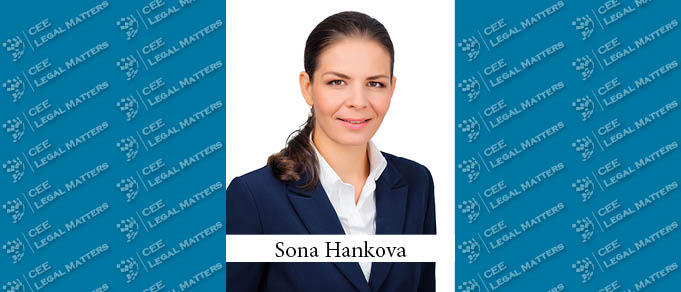The Slovak market is undergoing an ESG transformation. As in most CEE countries, ESG is not yet regulated by a specific law in the Slovak Republic. Nevertheless, the trend toward considering ESG issues has appreciably increased in the last two years.
ESG is the new GDPR. ESG requirements force Slovak companies to rethink their strategies, internal processes, and manner of reporting and collecting data, just like it was a few years ago when the topic of the GDPR popped up. When we, as lawyers, spoke with our clients about the GDPR for the first time, it was a major unknown for them and introduced many new obligations on their day-to-day agenda. Today, the GDPR is their common agenda and history is circling back wearing ESG clothes.
It is now time to raise awareness of ESG-related topics in Slovakia. The business community is creating various platforms to network, share know-how, and learn from each other on matters of ESG disclosures and reporting regulations. The financial sector is playing an important role in these endeavors, as businesses must take into account sustainability if they want to obtain external financing from banks.
Those who are still hesitant toward ESG might be caught unprepared by the planned new EU laws. The European Commission launched its proposals for a Corporate Sustainability Reporting Directive as well as a Corporate Sustainability Due Diligence Directive. After the completion of the legislative process, new sustainability obligations will affect not only large companies but also their suppliers – small and medium-sized companies. As a part of value chains, smaller market players will also have to comply, as much as possible, with the defined sustainability standards. Otherwise, they may not be able to exploit all business opportunities in the future.
The directives will impose many new reporting obligations, wherein compliance with them will require an extensive collection of data, monitoring, and change of the internal processes. It is expected that, under the new rules, by 2024, approximately 50,000 companies in Europe will have to file non-financial reports, in line with the mandatory EU Sustainability Reporting Standards. Some of the obligations will also apply to non-EU companies.
The laws under preparation will introduce mandatory corporate sustainability due diligence requirements, such as the obligation to integrate due diligence into policies, update it annually, and publicly communicate on due diligence. The planned concept of direct Director’s liability will put strong pressure on organizations. Therefore, many companies in Slovakia are already considering how they would be able to comply with the new requirements, if implemented. Many of them have discovered that they do have data available – but not in a comprehensive digital format and their collection might be time-consuming and complicated. Therefore, companies are currently putting even more emphasis on implementing adequate systems to collect data, digitalization, and automatization of processes.
Companies for which ESG has not been at the forefront of corporate thinking so far are surprised as to how complex the ESG agenda is and how many activities fall within the ESG umbrella. There are practical questions to be answered: Should implementing ESG require organizational changes in the company? Should it be the role of compliance departments, financial departments, HR departments, or lawyers? There are more ways to approach the issue. According to recent commercial surveys, there already are companies that have created a special ESG position, which is solely dedicated to the area of sustainability and ESG projects. So far, more than half of the companies only have a cumulative ESG manager function or do not have a special position. To avoid reputational damage, many companies at least created ESG task forces focusing on developing a corporate ESG due diligence checklist and procedures on how to report on sustainability claims and prevent greenwashing.
During the last few years, an increasing number of Slovak companies have changed their strategies to outperform competitors and to show that the topic of sustainability is the crucial driver at the heart of their business. The popularity of ESG is further enhanced by the generational shift of wealth to millennials, who are much more concerned about climate change and social issues. They are increasing the pressure on the business community to reflect their values.
However, there is still a high demand for educating the business community about all the benefits of ESG implementation as a tool for increasing financial returns, protecting investments, and as a part of a broader approach to risk management.
Sona Hankova, Partner, CMS
This Article was originally published in Issue 9.7 of the CEE Legal Matters Magazine. If you would like to receive a hard copy of the magazine, you can subscribe here.

















